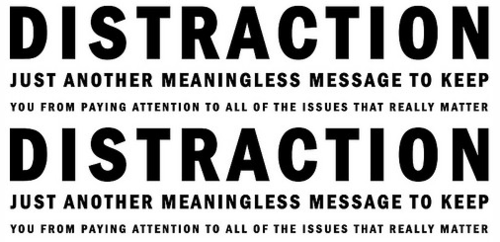
09 April 2016

This is the prediction of Gartner research analyst, Nick Jones.
So a notification distracts us momentarily but surely we are capable of ignoring and focusing on our work?
Well apparently not, and notifications are probably more disruptive than we realise.
A growing body of psychological research shows that the mental context of switching, which is caused by such interruptions, adversely impacts our ability to perform complex tasks. This is because human brains are not designed to multitask.
Glenn Wilson, of Gresham College, London, showed that merely knowing you have an unread email in your inbox can reduce your effective IQ by 10 points when concentrating on a task.
Earl Miller, a neuroscientist at MIT and one of the world experts on divided attention, says that our brains are not wired to multitask well.
"When people think they're multitasking, they're actually just switching from one task to another very rapidly. And every time they do, there's a cognitive cost in doing so."
Even though we think we're getting a lot done, ironically, multitasking makes us demonstrably less efficient. Multi-tasking has been found to increase the production of the stress hormone cortisol as well as the fight-or-flight hormone adrenaline, which can overstimulate your brain and cause mental fog or scrambled thinking.
Some psychologists believe that responding to interruptions is akin to a form of addiction that generates chemical "rewards" in the brain, so responses are difficult to voluntarily control.
Multi-tasking creates a dopamine-addiction feedback loop, effectively rewarding the brain for losing focus and for constantly searching for external stimulation.
We answer the phone, look up something on the internet, check our email, send an SMS, and each of these things tweaks the novelty- seeking, reward-seeking centres of the brain, causing a burst of endogenous opioids, which feels good but distracts to our ability to stay on task.

According to Gartner, by 2020 organizations will be using a wide range of technologies and tactics to reduce the number and frequency of interruptions.
This will create new product and service opportunities and drive demand for interruption management features in existing products. These will include:
Training and awareness Encouraging employees to voluntarily limit the use of devices and services that can cause excessive interruptions.
Smart filtering Tools such as virtual assistants and future intelligent messaging systems will attempt to categorize the importance of messages to deliver only those that matter. Some messaging systems or message types may be disabled in certain contexts.
Biometric monitoring integrated with smart messaging Researchers have demonstrated systems that monitor brain activity to identify when a worker is concentrating and determine when interruptions might be inappropriate. Such research will result in features embedded in wearable products before 2020.
Disabling enterprise messaging systems In certain contexts or at certain times. For example, employees performing critical tasks (such as a doctor diagnosing a patient or an engineer performing safety-critical maintenance) may be required to disable personal as well as enterprise messaging systems during certain tasks as a condition of employment.
However such measures are likely to cause significant tension between personal and enterprise goals of workers, especially when they impact BYO devices, such as smartphones and wearables.
Gartner suggests business should act now to:
3 Strategies to Reduce Telecom Cost